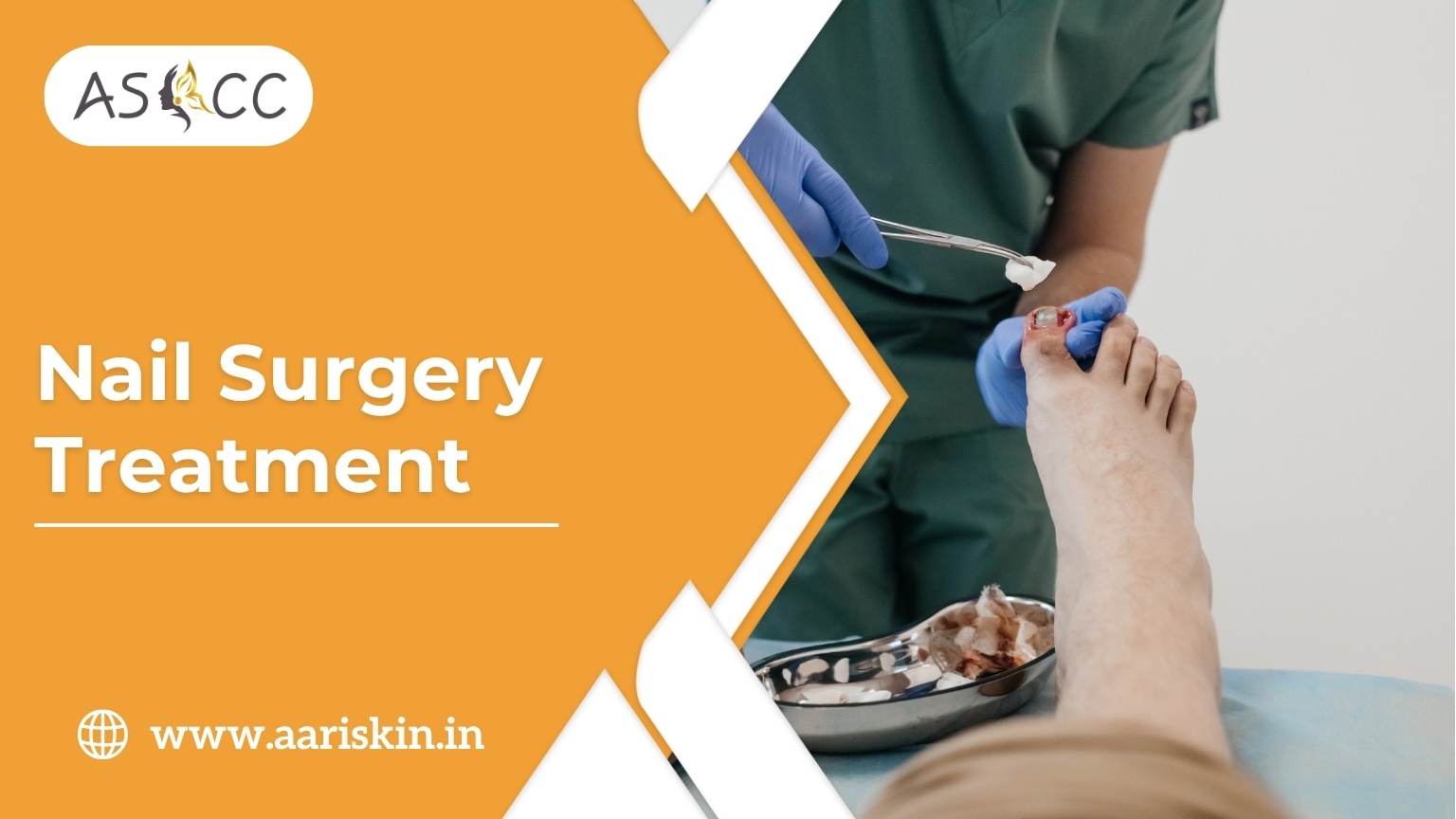What is Nail Surgery?
Nail surgery is a minor surgical procedure performed to treat nail disorders affecting the toenails or fingernails, especially when they are painful, infected, or ingrown. It may involve partial or complete removal of the nail or treatment of the nail matrix (growth area).
It is a safe, clinic-based procedure usually done under local anesthesia with minimal downtime.
Common Conditions Treated with Nail Surgery:
| Condition | Description |
|---|---|
| Ingrown toenail | Nail grows into the skin causing pain/infection |
| Chronic paronychia | Persistent nail fold infection |
| Fungal nail infection | Thick, discolored, hard-to-treat fungal nails |
| Nail trauma | Cracked, split, or lifted nail due to injury |
| Deformed or thick nails | Causing discomfort or shoe pressure |
| Tumors or cysts under the nail | Rare, requires biopsy |
Types of Nail Surgery Procedures:
Partial Nail Avulsion (PNA):
- Only the ingrown or damaged part of the nail is removed
- Most common procedure for ingrown toenails
Total Nail Avulsion (TNA):
- Entire nail plate is removed if it’s severely deformed or infected
Matrixectomy:
- The nail matrix (growth root) is removed or destroyed to prevent regrowth
- Can be chemical (phenol) or surgical
Biopsy or Excision:
- For suspected nail tumors or chronic unexplained nail changes
- Nail bed may be sampled and sent for histopathology
Procedure Details:
| Feature | Details |
|---|---|
| Time Taken | 20–45 minutes |
| Anesthesia | Local (numbing injection at base of finger or toe) |
| Recovery Time | 7–14 days (with dressing and care) |
| Follow-Up | Required for dressing changes/stitch removal |
Aftercare Instructions:
- Keep the wound clean, dry, and covered for the first few days
- Wear open-toe or soft footwear after toenail surgery
- Take antibiotics or painkillers if prescribed
- Avoid pressure or trauma to the treated nail
- Resume normal activities in a few days
Who Should Consider Nail Surgery?
- People with recurring ingrown nails or chronic pain
- Those not responding to medical or home treatment
- Patients with thick fungal nails causing discomfort
- Individuals with suspicious nail lesions needing biopsy
Not Recommended (temporarily) For:
- Active severe infection (may need oral antibiotics first)
- Poor circulation or uncontrolled diabetes (requires special care)
- Bleeding disorders (must be evaluated beforehand)






